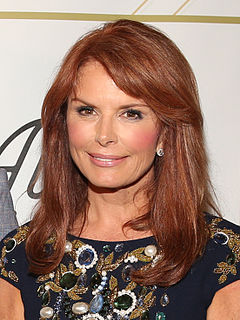A Quote by Norman Mailer
It's very bad to write a novel by act of will. I can do a book of nonfiction work that way - just sign the contract and do the book because, provided the topic has some meaning for me, I know I can do it. But a novel is different. A novel is more like falling in love. You don't say, 'I'm going to fall in love next Tuesday, I'm going to begin my novel.' The novel has to come to you. It has to feel just like love.
Related Quotes
The age of the book is not over. No way... But maybe the age of some books is over. People say to me sometimes 'Steve, are you ever going to write a straight novel, a serious novel' and by that they mean a novel about college professors who are having impotence problems or something like that. And I have to say those things just don't interest me. Why? I don't know. But it took me about twenty years to get over that question, and not be kind of ashamed about what I do, of the books I write.
It's disingenous for me to say that I wasn't trying to write a moral novel. By its very nature as a novel about the Iraq War, Fobbit steps into the political conversation. There's no way to avoid that. I can appreciate that readers are probably going to line up on one side of the novel or the other. I hope they go to those polar extremes, actually.
The more readings a novel has, even contradictory, the better. In journalism, you talk about what you know; you have provided yourself with records, you have gathered information, you have performed interviews. In a novel, you talk about what you don't know, because the novel comes from the unconscious. They are very different relationships with words and with the world. In journalism, you talk about trees; in the novel, you try to talk about the forest.
A romance novel is more than just a story in which two people fall in love. It's a very specific form of genre fiction. Not every story with a horse and a ranch in it is a Western; not every story with a murder in it is a mystery; and not every book that includes a love story can be classified as a romance novel.
A novel is what you dream in your night sleep. A novel is
not waking thoughts although it is written and thought
with waking thoughts. But really a novel goes as
dreams go in sleeping at night and some dreams are like
anything and some dreams are like something and some
dreams change and some dreams are quiet and some dreams
are not. And some dreams are just what any one would
do only a little different always just a little
different and that is what a novel is.
What was fun for me with this book [Lincoln in the Bardo] was to start out with the principle that went, "We're going to fight every day to make this not a novel; make it too short to be a novel." And then with that principle in place, the book sort of starts to say, "Okay, but I really need this. I really need some historical nuggets." And you're like, "All right, but keep it under control."







































